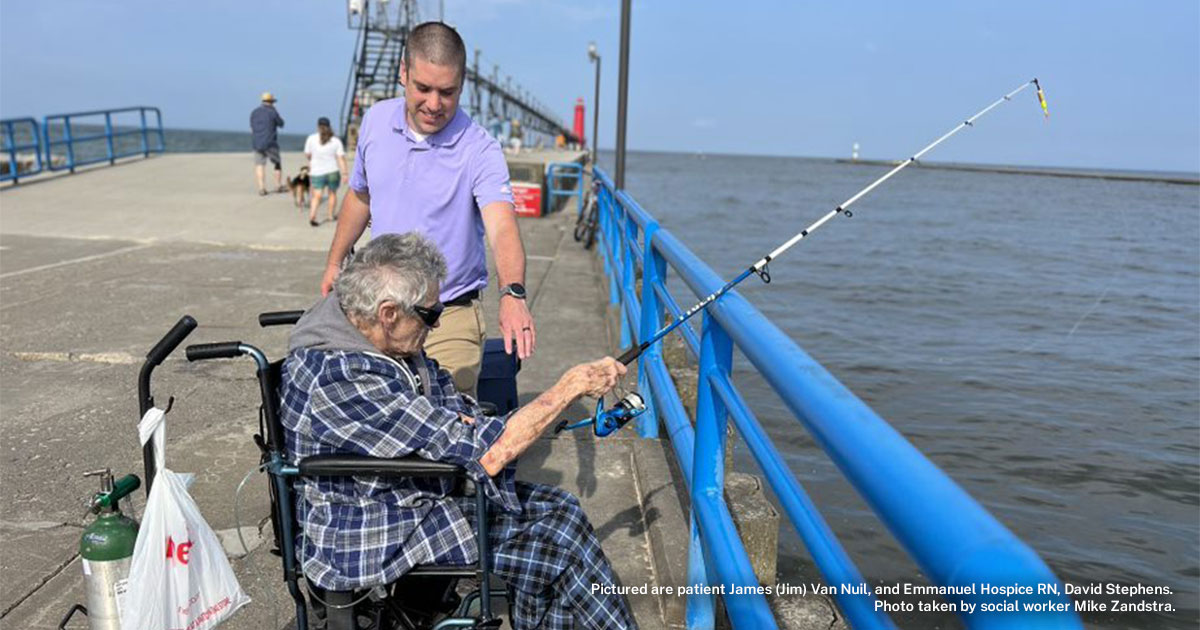In today's world, it's tough to pin down a fact.
And for those who work in hospice especially, it's more important than ever to keep educating an inquisitive public—and to dispel myths surrounding a viable medical option that's been around the better part of five decades.
"I think the biggest one we still run into is, 'Wow, I don't want to sign my loved one up because it's like signing a death warrant,'" said Jan Amato, business development specialist for Emmanuel Hospice. "That's a huge misconception we deal with all the time. Hospice isn't about giving up—it's about living more.
"In truth, hospice is for people who may have weeks and months to live. And that's not the only myth we are constantly debunking."
Others, Amato said, include:
- Hospice is only for cancer patients. Not true, as more than half of hospice patients are facing other challenges.
- That hospice is a "place." Again, misleading, as some 70% of hospice patients receive care in their own homes.
- Its practitioners are too aggressive regarding the use of morphine. In truth, hospice workers are not interested in hastening death and are careful about morphine and all the medical options they bring to bedside. Instead, they're focused—especially in Emmanuel's case—on "how you want to live" during the precious time remaining.
- That hospice is only for those in their last days and hours. Actually, many hospice patients are still engaged in day-to-day activities. They travel. They're up and around and interacting.
Hospice, Amato stressed, is available to anyone diagnosed with life expectancy of six months or less. But even if you defy those odds and "graduate" from hospice, you can become eligible again without prejudice.
Another misnomer is that hospice is designed for patients only. At Emmanuel, the emphasis is on treating patients and friends and loved ones, addressing not only physical concerns, but emotional, social and spiritual needs as well.
Amato said clients are often surprised to learn Emmanuel offers many complementary therapies that bring everything from massage to music to aromatherapy to pet visits to art experiences to patients. All at no extra cost.
And speaking of cost, myths abound there, too. Normally, there is no direct cost to patients and families for hospice care. Medicare and most other insurers cover all or most of hospice expenses.
Many of the myths surrounding hospice emanate from our culture's reluctance to talk about death and dying, Amato maintained. In a word, too many of us are in denial. When we face the fact we all must succumb to something sometime, it opens the doors to communication, and the more we talk, the more we're liable to become educated.
To do the opposite is to possibly delay calling for hospice when the time is right. While that might satisfy the desires of some family members, it might not be what the patient really desires or needs. A capable hospice worker serves as that "extra set of eyes and ears," acting in the best interests of that patient and working alongside loved ones to counsel them as things progress.
"We're not there to provide cures, but instead comfort and care," said Amato. "And when people realize that and more, patients often tell us something we hear too often: 'I should have called you sooner.'"
Courtesy of Emmanuel Hospice.
Photo Courtesy of Emmanuel Hospice.




